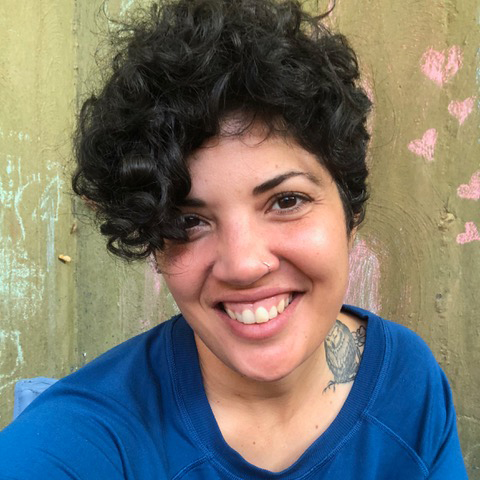
In this series, Shawna Ayoub moves "beyond a book review" in not only recommending great books by diverse writers but highlighting a technique to apply to your own writing practice.
Expanding your writing world
My decision to read LGBTQ+ and BIPOC writers for the last two years was a serious endeavor to educate myself on the work of and worlds of multiple minorities. The reason for that was greater than my personal intersections with these communities. I wanted to see what was possible in creativity beyond the standards. And when I say that, what I mean is, I wanted to know what was possible beyond what I was taught.
Literature and Language Arts as subjects in my education were largely white fields. The writers had strong, certain voices that were beautiful, powerful, and ripe for beginning critical thought. But there is more to the world of writing than the excerpts in textbooks and the library classics passed out in classrooms. Writing from non-white and/or non-male and/or non-heterosexual writers all break the mold by inviting readers outside of what’s accepted and into the Other through the exploration of intersectionality.
Intersectionality and imagination
In life, intersectionality often means adversity. Adversity necessitates imagination. When you are poor, for example, you must get creative about meals—how to find them, how to prepare them, how to stretch them. This necessary thinking leads to what-ifs and wishes. What if billionaires spread out their wealth so that no one went hungry? The math shows it can be done. What if you won the lottery and could not only pay your bills, but your family’s, pulling all of you up out of poverty? What if aliens came to Earth and saw the way we Terrans are segregated into social classes? What if they imposed a solution?
Speculative literature allows for room to stretch the mind well beyond the expected and accepted. We can rage against the accepted through our creativity beginning with our reading. This is what I’ve been doing with my choices for these book review posts. LGBTQIA+ and BIPOC writers have freed me from the limitations of beginnings, middles, endings, gravity, pumping blood, consciousness, Earth, the requirements of natal family, technology, nature, and more. Through the journey to each of these releases, I learned I can also choose to hold on. Maybe I want gravity in my world. Maybe I choose my natal family. Maybe I am a fan of endings.
Exploration allows me to discover and learn what feels right for me.
Challenge yourself in order to grow
Here’s my secret, though. I don’t write speculative fiction. I used to write dream sequences in my fictive works. I love them. But my writing for the last many, many years has been non-fictional memoir that focuses on survivorship. Sure, I read memoir, other nonfiction, fiction, and poetry. I gain a lot from them all. Speculative fiction offers me more: it allows me to turn my personal stories sideways, look at them from new directions, and then write from the upside-down view.
This willingness to read outside of your genre to shift your perspective is essential to writing. How can you know what letters are on a child’s ABC block if you don’t turn the block over? Only reading one genre means you only look at the top of the block. You only see and learn the letter A. Your writing education, then, is A. But a block has 6 sides. Not looking around means you’ve done yourself an incredible disservice. Your writing will likely grow stilted and boring over time. This doesn’t mean you can’t have success, but it does mean you’re less likely to grow. Really grow. Become the best you can be.
So, what are you reading? More importantly, what do you refuse to read because it’s “just not for you?” For me, the answer was horror. If you look back at my reviews, you’ll find quite a few of them are horror books. They’ve challenged me in many ways, but I discovered that I truly enjoy some horror writers. I even enjoy some horror movies, which surprises me. (If only my 10-year-old self could see this possible version of me.)
A writing prompt
This month, I encourage you to write a journal entry as your prompt. Write about a book or genre you’ll never read and why. Then turn around and convince yourself otherwise. Tell yourself what you can gain. And check back in to let us know if you’re going to try (or already have tried) this technique for growing yourself as a writer.
Have you given much thought to your reading habits and whether they are expansive and exploratory enough to facilitate your growth as a writer? Will you try this exercise? Let us know how it goes in the comments.
Read this post on the Center's Substack and subscribe, if you haven't already, to receive posts like this in your inbox every Wednesday.
